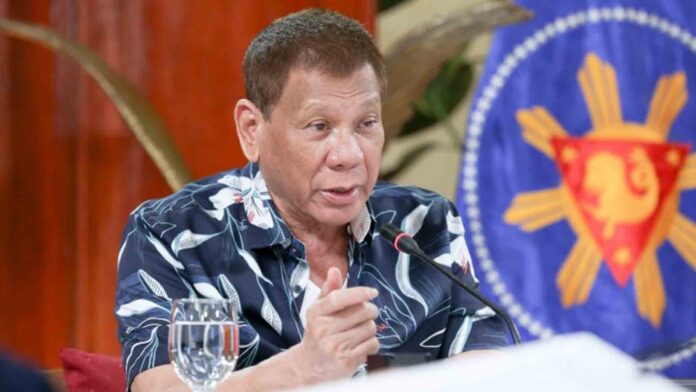As the government revives the economy from the impact of the coronavirus disease 2019 (Covid-19) pandemic, President Rodrigo Duterte’s Cabinet has approved a one-seat-apart policy for public transport, Malacañang said Tuesday.
In a Palace press briefing, Presidential Spokesperson Harry Roque said this was among the economic cluster’s recommendations “unanimously” approved during the 48th Cabinet meeting on Monday night.
“Inaprubahan po ng gabinete, na sa pampublikong transportasyon, one-seat-apart na po ang distansya (The Cabinet approved that in public transportation, one-seat-apart is the distance),” he said.
Roque said the seating capacity will gradually increase or seating together with plastic barrier or use of UV light will also be allowed.
“Magsimula sa pagkakaroon ng one-seat-apart at paunti-unting pataasin ang seating capacity o payagan na makaupo na magkatabi basta may plastic barrier (From one-seat-apart, the seating capacity will be gradually increased, allowing passengers to sit next to each other as long there is a plastic barrier),” he said.
Roque said the one-seat-apart policy will replace the “one-meter” physical distancing policy among commuters previously being implemented in public transport.
He explained that the decision to replace the policy was based on studies made by former Health Secretary Manuel Dayrit which were submitted to the Inter-Agency Task Force for the Management of Emerging Infectious Diseases (IATF-EID).
“As far as reducing the one meter distance is concerned, it was arrived at as a matter of consensus and it was based on science, it is based on studies which Dr. Dayrit presented to the IATF,” Roque said.
The one-seat-apart policy, he said, will take effect immediately after publication on the Official Gazette.
There is no need to issue an IATF resolution to enable its effectivity, he added.
According to Roque, the Department of Transportation (DOTr) will issue guidelines on the one-seat-apart policy.
“I’m sure DOTr will issue the final guidelines pero (but) one-seat-apart is one-seat-apart po, hindi pupuwedeng magkakatabi (they can’t sit next to each other),” he said.
He said the need to revitalize the economy is the main reason behind the Cabinet’s decision to approve the one-seat-apart policy.
“The fact that we needed really to open the economy because the lockdowns have been causing poverty and malnutrition on the part of our children and the fact that we have the seven commandments,” he said.
The seven commandments for all public transport, he said, are wearing of face masks; wearing of face shield; no talking and no eating; adequate ventilation; frequent and proper disinfection; no symptomatic passengers, and appropriate physical distancing.
Roque said the Cabinet also approved the recommendation to expand rail capacity to 30 to 50 percent; expand the number of provincial buses, motorcycle taxis, shuttles, and transport network vehicle service (TNVS), and accelerate use of service contracting to expand bus and jeep services. (PNA)






